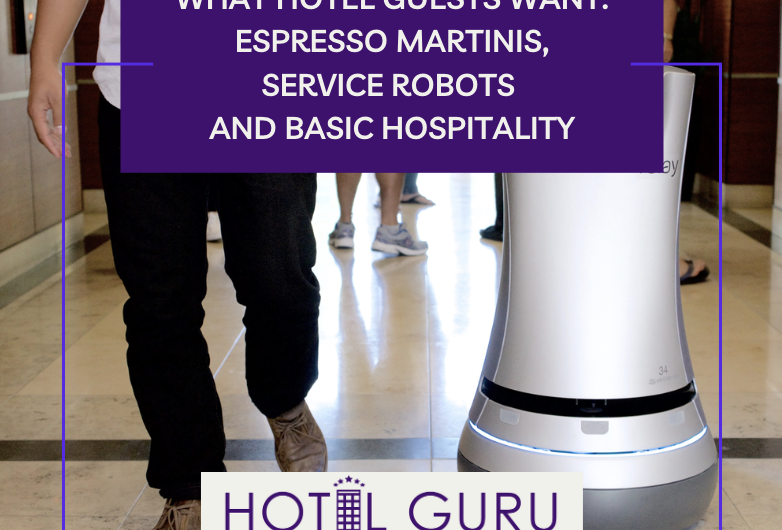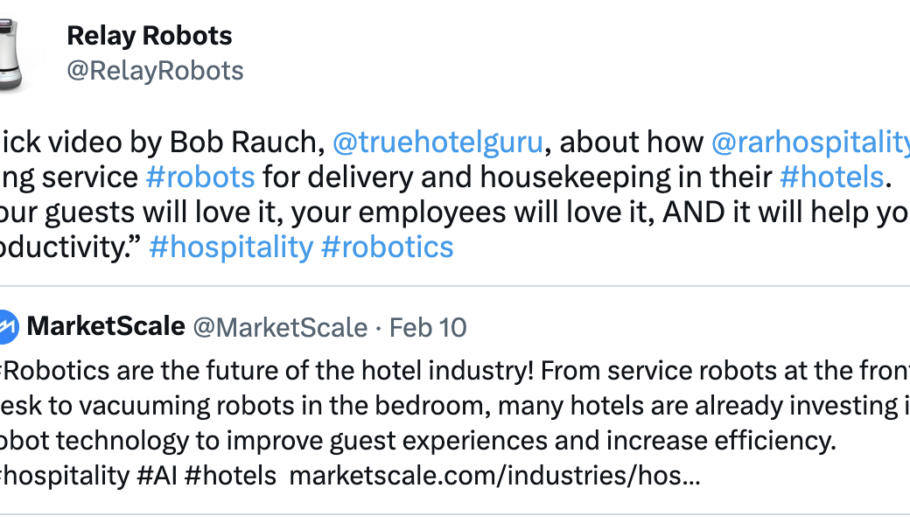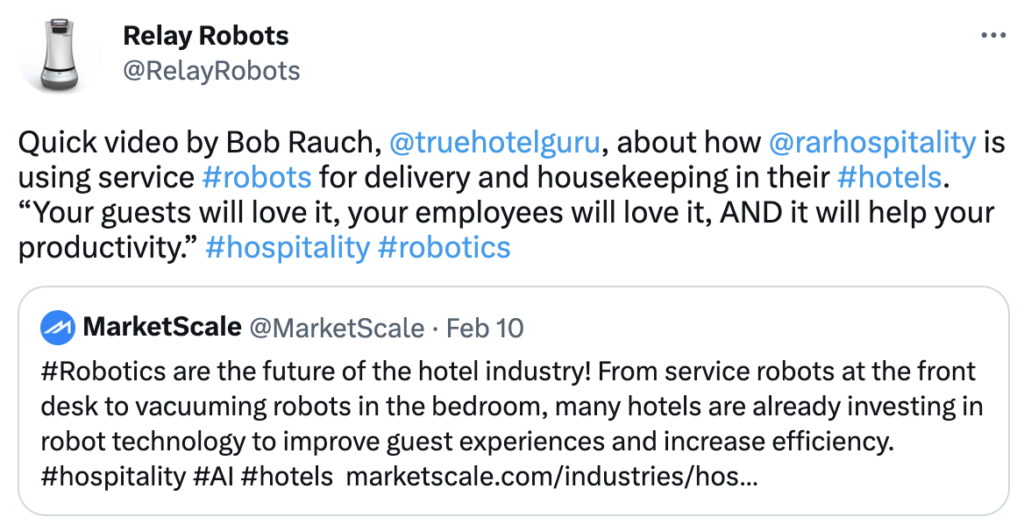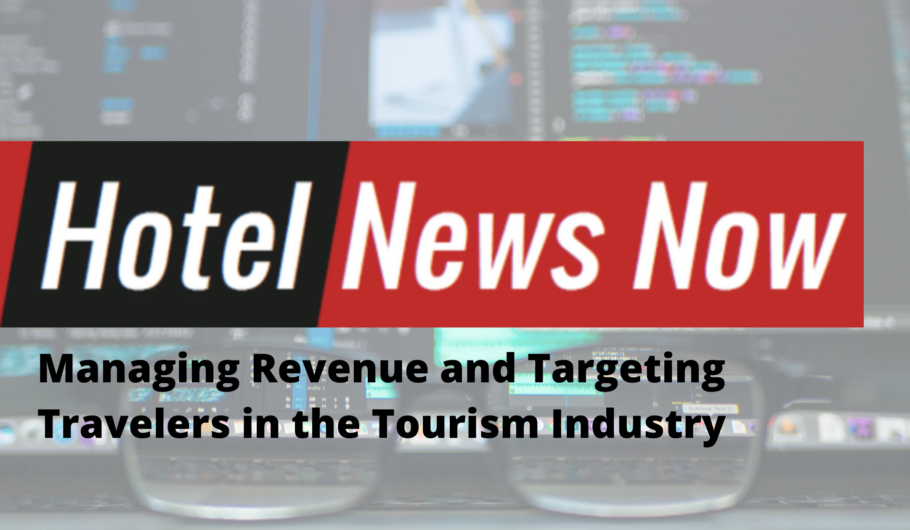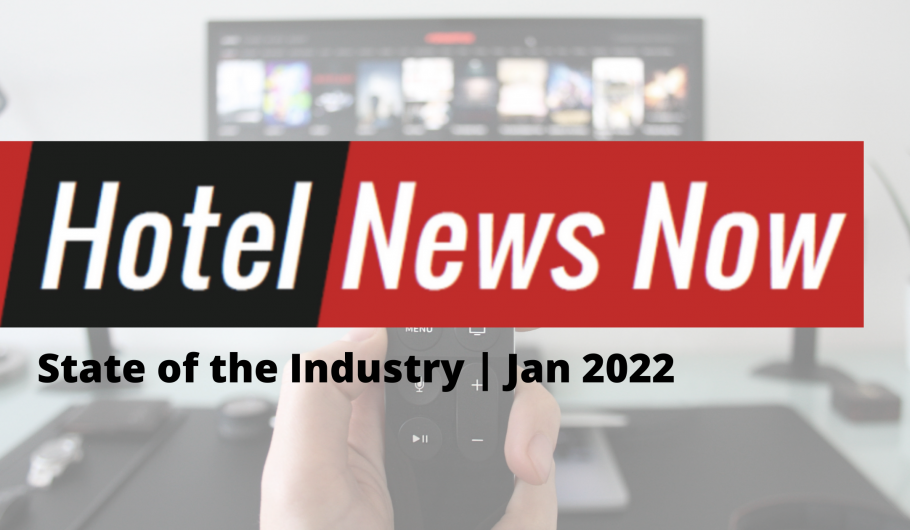The Good and the Not So Good for Hospitality Halfway Through 2023
Hotel Demand Will Continue To Accelerate
By Robert Rauch
Original Article on HNN can be found HERE
At the beginning of this decade, the lodging industry experienced a significant recession triggered by the lockdown measures implemented in March 2020.
These measures resulted in the closure of attractions, numerous hotels, and a virtual halt to travel in the United States and abroad. Now, let’s examine how the post-lockdown environment is affecting the economy.
Unemployment rates have significantly decreased and currently stand at approximately 3.5%. Additionally, the banking crisis that caused market concerns early in the second quarter of 2023 seems to be contained or under control. According to CBRE, the forecast for the gross domestic product indicates it will remain around 1.5% for the remainder of this year and throughout 2024.
Inflation, as measured by the Consumer Price Index, has been consistently higher than the long-term average of 2.8% for the past three years. This inflationary pressure has resulted in a 24% increase in wage rates over the same three-year period. While average hotel rates have experienced significant growth, reaching the high teens at 18% or more, the real revenue per available room has not yet kept pace with the rate of inflation.
The Good News
Demand will accelerate for several reasons. First, leisure business continues to do well, corporate and groups are growing toward 2019 levels, and international travel is just beginning to come back. Average rates are up in all sectors: leisure, corporate negotiated and group. We do not see rate resistance yet, and all signals are good for RevPAR acceleration. Consumer confidence is up for the seventh straight month and Google search travel trends are back at 2019 levels. International travel is coming back with the restrictions easing, even in Japan and China.
Not as Good
We don’t see much movement in occupancy going forward. It doesn’t benefit us to take any more business; we are better off charging more as demand accelerates in the third quarter. Finding a good labor force, especially in housekeeping, continues to be a work in progress. Training new hires is tougher now than ever before as management teams are new due to the impact of the lockdown. These managers are training supervisors who have never managed others before as they were promoted from line positions recently. It is almost like the blind leading the blind, which creates opportunities for daily mistakes, apologies to guests, refunds or discounts and organized chaos.
Not So Good
While travel is a birthright in the mind of most Americans, inflation, interest rates and construction costs are certainly headwinds. Costs of food, energy, insurance and labor are at all-time highs with no sign of slowing. These costs are up an average of 10% over last year, and those costs were up over 10% over 2021.
Interest rates are making it difficult to refinance. If there is good news here, it is that no new supply will be the mantra as getting a construction loan now is as difficult as it has been in years. This is partly due to interest rates as well as the collapse of Silicon Valley Bank, Signature Bank and a few others. So, it is good news for operators, bad news for those trying to break ground.
Office occupancy rates are at historic lows, and that continues to be a headwind for corporate demand. Housing and mortgage prices are up, and wages are up 24% in the past three years. The second quarter is softer, but we continue to see an improved market in all sectors of lodging.
Bank Debt
Banks’ appetite for hotel financing is much less than back in 2019. Construction loans are at 8%-plus. and existing hotel acquisitions are being financed at closer to 7%. The landscape is better suited for conversions since that involves an asset with stable cash flow. There is private equity out there, and while it is not cheap, it offers slightly better leverage than the 50% to 55% that a bank will fund. Banks still prefer to finance projects for major brands such as Hilton, Marriott and IHG, because of their robust reservations and awards systems, but there is still interest in financing independent hotels in more urban areas.
Forecast
Air, hotel, online travel agencies, cruise lines and short-term rentals are all finally above 2019. April had some budget misses, leisure is flat, group and corporate are still coming back and RevPAR should be up over 5% both in 2023 and 2024. Naturally, every macro and micro market is different. In San Diego, we work closely with the San Diego Tourism Authority and the San Diego County Lodging Association to produce an annual detailed submarket forecast. We have also worked with Visit Phoenix to produce similar works in conjunction with the Phoenix Area Revenue Managers.
Stay focused — all will be good through the 2024 elections for now!
Robert A. Rauch is founder of R.A. Rauch & Associates, a hospitality management and consulting firm based in San Diego.
Time for Hoteliers To Reevaluate Competitive Advantage
Strategies for Maximizing Hotel Marketing, Technology and Finance
By Robert Rauch
Original article published on CoStar can be found here
May 30, 2023 | 6:15 AM
The classic model of competitive advantage is Michael Porter’s “Five Forces.” According to Porter, “the existence of products outside of the realm of the common product boundaries increases the propensity of customers to switch to alternatives.”
Because of the pandemic and the lack of new supply over the past few years, the hotel industry has been somewhat immune to new competitors. Airbnb, Vrbo and other short-term rentals are competitors for tourist dollars as well as soft brands, the ones that brands added so that they could both boost revenue streams and compete with these short-term rentals.
As we see it, short-term rentals and soft brands are a new reality that hoteliers are still grasping to embrace. Is Airbnb a complement to hotels or is it a threat to the traditional hotel model? Are soft brands a great way for hoteliers to have some design flexibility and still have the horsepower of a brand? Or is it just another competitor adding to supply?
Given the penchant of millennials and Gen Z travelers to chart their own paths and their increasing share of the traveling public, expect to see Airbnb and other “short-term rental” players continue to dominate the conversation and hoteliers continuing to focus on gaining a competitive advantage. Additionally, the brands are updating their legacy brands to make them more competitive — yes, at the expense of the owners, but the products look good!
Technology as a Competitive Advantage
Competitive advantage consists of two components. The first is the distance between our hotel offerings and our nearest competitors — or the competitive advantage gap. The second is competitive advantage period (CAP). In other words, if a hotel company has superior products and significant barriers to entry, it has both a competitive gap (product differentiation) and a competitive cap (time lag for competitor entry).
What immediate and practical steps can we utilize to optimize our competitive advantage? We can reevaluate our distribution processes, promotions and channels as well as adding robotics and guest-serving communications technology. The large amount of demographic and psychographic information available about the makeup of today’s traveler requires analytical skills and creativity to correctly respond to the marketplace.
When direct bookings result in repeat business, costs are reduced rather dramatically and owners are happy.
Many hotels do not have qualified staff to develop these direct bookings — so which is better? Paying an online travel agency or developing a team? For a quick fix, opt for the OTAs. For the long haul, we must work on our teams to increase our profits and use OTAs to complement our direct bookings to obtain a healthy mix of business.
Pay-Per-Click Strategy
We can refresh our pay-per-click strategy by doing more than just bidding on keywords that persuade people to click our ads. We can tailor keyword combinations to clearly outline the benefits of booking direct, and include direct links to the specific rates displayed.
Cleaning up our phrasing and clarifying benefits by experimenting with different verbiage is critical. Ensuring that changes are made as needed will help amplify our profile for guests looking to book. Other social strategies can be employed by our digital team to enhance results.
Finance
Today, credit is tightening at a time when there is a significant amount of hotel loan maturities on the short-term horizon. Almost $400 billion of bank commercial real estate loans are maturing in 2023. Meanwhile, limited access to capital and higher interest rates have already begun to negatively affect property valuations. This will stress the takeout on these upcoming maturities. Those who are prepared to refinance in advance of these maturity dates will have a major competitive advantage as they will not need to increase their rates materially in the event of a recession.
Summary
Competitive advantages that are guest-facing must be made known to potential guests. If we think this way with all facets of travelers — group, corporate, leisure and international — we can optimize performance. If we also have our finances in order, we will be in a position to own our future without stress.
Robert A. Rauch is founder of R.A. Rauch & Associates, a hospitality management and consulting firm based in San Diego.
It’s Time To Induct the Next Class of Hotel Industry Icons Into the Hall of Honor
Conrad Hilton School in Houston Has Led the Effort in the Past
By Robert Rauch
HNN columnist – This article can also be found here
Most industries have some kind of Hall of Fame or in the case of the hospitality industry, a Hall of Honor.
Such is the case in both many states individually and at the Conrad Hilton School in Houston. Each year, from the inception in 1996 of the Hall of Honor through 2016, industry leaders were recognized. These included J. W. Marriott, Conrad N. Hilton, Ray Kroc, Ernest and Julio Gallo and Walt Disney to name a few.
The Hall of Honor Gallery is located off the main lobby of the Hilton University of Houston and features specially commissioned portraits of each inductee by artist Robert Lapsley. According to the college, “personal papers, memorabilia and corporate histories are archived and displayed in the Massad Family Library Research Center and Hospitality Industry Archives at Hilton College.” This memorialized the inductees’ achievements and leadership and provided an appropriate tribute to the companies they conceived and built during their lifetimes.
According to the archives, “on September 25, 1996, Conrad N. Hilton, J. Willard Marriott, Vernon Stouffer and Kemmons Wilson became the first honorees inducted into the newly established Hall of Honor at a gala ceremony attended by more than 350 people.
Today, we are seven years removed from the last induction. It is difficult to keep up with a concept like this — after all, it is not like baseball, where millions of fans know their players for years. This is an industry with millions of employees but someone needs to keep up with who the players are that make this industry tick. Since that original induction ceremony, there are myriad industry leaders who were inducted, some of whom are still active in our industry. They include Chris Nassetta, Jack DeBoer, Randy and Carolyn Smith, Steve Rushmore, Stephen Bollenbach, Mike Leven, John Q. Hammons and 50 or so more.
Each year, we lose industry icons that pass away after 50 to 60 years of service to our industry. Two that we lost last month include Howard Feiertag and Bruce Baltin. Even though I never worked directly with Howard, I looked to him as my idol and mentor. He once offered me a job but I didn’t want to relocate to Florida from Arizona. My wife is happy that I didn’t move because we never would have met! Howard was not only a great hotel marketer, speaker and author but also a great hospitality educator and a mensch. Bruce Baltin was arguably one of the greatest hospitality consultants ever to serve our industry. If I ever wanted advice on a hotel project, I knew that he was as good as anyone at answering the question. He was also a great leader who gave of his time for students, clients and colleagues.
There are many since 2016 who I would have liked to see honored in this Hall of Honor. Peter Yesawich is one, Arne Sorenson another and many of you out there know some superstars who someday should be honored. Think in terms of hoteliers Mit Shah, Mitch Patel and other entrepreneurs. There are some great tourism industry CEOs, media including the late Jerry Merkin and consultants such as Suzanne Mellen and Karen Rubin. Additionally, lawyers — Jim Butler, as an example — have pioneered hotel law.
There are many others who should be considered. I am writing this to try to stimulate new life into either the Conrad Hilton program or a new way to honor our top contributors. I could think of no better place than to have this appear in CoStar’s Hotel News Now. Maybe some great idea will fill the void before more industry icons pass away.
Robert A. Rauch is founder of R.A. Rauch & Associates, a hospitality management and consulting firm based in San Diego.
What Hotel Guests Want: Espresso Martinis, Service Robots and Basic Hospitality
Tips for Boosting Guest Satisfaction Scores
By Robert Rauch
HNN columnist / Original article can be found on CoStar.com
What does it take to make guests happy?
We all know that if guests are not happy, they do not return. Ergo, if guest reviews are critical, and they are, how do we optimize the guest experience?
While this article will not touch on every facet of the hotel industry and will not cover every type of guest experience, consider it my primer on ensuring guests are excited about our properties — even if we have a focused-service hotel with limited guest amenities.
Food and Beverage
The “new normal” of food and beverage began before the pandemic with the elimination of room service by many hotels. Now, guests are more interested in high-quality food and beverage than they are in being pampered — except at the five-star level.
Smaller menu offerings, reduced hours and picking food up versus having it delivered are all fine, so long as quality is there. Good, consistent food service coupled with unique beverage service will be appreciated.
If you do not have a restaurant, all you need is a staff that can recommend great food and beverage experiences. If you have a restaurant and bar, a great cocktail menu that includes espresso martinis, great local wines, craft beers and mocktails will be a hit! Couple that with a staff that is friendly, well-trained in the basics and reasonable prices and profits can actually be made!
Wellness Is Top of Mind
As we transition from food and beverage to wellness, one key area is a healthy balance of food offerings to include both the “meat and potatoes” of the world and the “lean, veggie” diet. Guests who are conscious of wellness will want vegetarian, vegan and gluten-free options for food.
The wellness travel market is now approaching a trillion-dollar industry according to the Global Wellness Institute. Guests want stress reduction, accessible exercise options and healthy snacks and meals. Yoga is now mainstream and mindfulness is a growing self-care practice. The latest fitness equipment in the gym, opportunities, on-site or off-site for fitness classes and information that makes staying healthy on the road will benefit the traveler and create happier guests.
Technology Extras That Impress
Robotics is not a new concept, but it is now hitting mainstream in hotels. A service robot can deliver food, beverages, sundries and housekeeping supplies, and these bots are loved by guests and team members alike. A service bot can monitor the Wi-Fi system and provide additional security through its camera and by allowing a night auditor to stay at the desk late at night to early in the morning. A vacuuming robot can do the room flooring while a housekeeper cleans the bathroom — this is both productive and reduces workers’ compensation claims due to back strain from vacuuming. These robots can be manufactured in bulk now, so pricing is coming down.
Back to Basics
Today’s guests are not that different; however, we just came out of a true pandemic, one that changed mindsets about life in general and also reinvigorated the “travel as a birthright” lifestyle. According to a fall 2022 study by HospitalityTech.com, free Wi-Fi is still No. 1 on the guest wants list. Positive reviews are a close second and the ability to use their mobile device for reservations is third, tied with text communications with the hotel before the guest stay. A friendly, knowledgeable and well-trained staff can make a guest feel comfortable from the very first touch and through their stay. Guests want a friction-free stay, and if we can add great food and beverage, nice touches in our guest rooms and the ability to live like we do at home — think smart TVs — we will score very high on reviews.
Robert A. Rauch is founder of R.A. Rauch & Associates, a hospitality management and consulting firm based in San Diego.
Why Hotels Should Learn to Love Robot Technology
CLICK HERE TO WATCH FULL VIDEO
The guest experience is getting upgraded at many hotels today thanks to innovative robot technology.
Aloft Hotels first introduced the world’s first robotic concierge in the early 2000s, and in 2014, they brought Botlr, a robot butler service, to the team. These AI enhancements increased the guest experience through shorter wait times for room deliveries and improved housekeeping operations efficiency. Aloft may have led the way, but other hotel chains are quickly catching on to the advantages of robotic services.
Some challenges could offset these advantages due to the costs of implementing and maintaining the robotic infrastructure and a lack of industry-wide standards for hotel robots. Still, the increasing need to provide services with a lack of available workers means hotels will likely continue to look towards robotics to find solutions. Experts predict the global market for hotel robots will grow to $338 million by 2025.
Robert Rauch, hotel entrepreneur, Managing Partner, Hilton Campus Del Mar, faculty associate at the School of Community Resources & Development at Arizona State University, and CEO of RAR Hospitality, see the efficiency benefits of bringing robotics to both front- and back-of-house hotel operations as multi-layered. Beyond that, though, Rauch sees the investment as a smart move for increasing hotel profit margins.
Robert’s Thoughts
“I’ve got to tell you, robotics is the future. We have two types of robots. One is a service robot, the other is a vacuuming robot. So the service robot we’ve had for six years now, and I can tell you the guests see the service robot at the front desk. By the time they’re up in their room asking for either food, beverage, or supplies, they ask for the robot.
Now, is it because they don’t have to leave a tip? No. Really, they are just wowed by interacting with the robot. So what else does the robot do? If you have an 11:00 PM to 7:00 AM shift where you have one employee in the hotel, because it’s a limited service hotel, you’ve got better security because the delivery’s made by the robot. Also, you’ll be able to tell if the WiFi system is not working because it works on the WiFi system, so it’ll tell you if there’s a problem, and it also has a camera and sees any security issue in the hotel. So, highly recommend getting a service robot.
Relative to vacuuming robots, while we’ve only had them for about six or seven months now, I can tell you that it reduces pressure on the housekeeper’s backs and also creates a productive environment where the housekeeper’s cleaning the bathroom while the robot is vacuuming the floor in the bedroom. So, why get involved? Great PR, your guests will love it, your employees will love it, and it’ll help your productivity.”
What is new in 2023?
by Robert A. Rauch, CHA
We are seeing a shift from sitting at home to experiencing the world. Some travelers came out in 2021, others in 2022, and everyone is finally getting out in 2023! The world was closed, now it’s completely open with the exception of China. Pent up demand still exists today in the leisure segment and groups and business travelers will continue to increase their travel from 2022 to 2023. This will occur even if there is a recession as companies cannot grow if they do not meet. Corporate balance sheets are in good shape and while the headwinds of a slowing economy could impact some travel, 2023 will be a good, solid year.
Sustainability, Authenticity and Diversity and the Gen Z Traveler
Our guests want us to be friendly to the environment and to be sensitive to greenhouse gases, air and water pollution and clean energy. In 2019, the tourism sector totaled 8% of greenhouse gases globally, according to Carbon Brief. Several industry sources say we are reducing our negative impact across the sector which is good news, but travelers would love to hear that we are doing more.
Sustainability and diversity are top causes for socially conscious meeting planners, their attendees and travelers in general—additionally, wellness is a huge focus. The Global Wellness Institute expects to see over 20% annual growth in the wellness tourism industry over the next several years. Events focusing on health, meditation, recreation, sustainably-sourced food, and related activities will compete favorably for both business meetings and the individual traveler.
Gen Z travelers, who grew up with heightened awareness of climate change, global crises and desire for diversity are looking for newer experiences. They like eco-friendly accommodation options and businesses that hire employees that look like them. There is a five-point spread between Gen Zers and others when considering staying in a green accommodation on their next vacation, 38% of Gen Zers compared to 33% of those over 25.
Gen Z heavily utilizes technology, including TikTok, Instagram and other social media channels when they travel. These travelers are interested in places where they can post photos while they are on the road or after they have returned. These memories and experiences will differentiate one hotel, restaurant or tour from another and one place from another.
Authentic experiences are desirable by nearly 50% of Gen Zers and over one third of global Gen Zers said they prioritize spending money on local businesses and products when traveling, according to MMGY. That is equal to the 25+ crowd, who have more financial freedom. Gen Zers are also more likely to be interested in traveling with a purpose, such as volunteering and ecotourism, which is again fueled by the desire to do something meaningful and give back to the community.
Other Guest Demands
Breakfast continues to be near the top of guest desires and they strongly prefer a free breakfast even if they have to forego award points. Additionally, they want a better breakfast with some creativity! Housekeeping service is a touch point that we must all address this year–how do we simplify it, what bed toppings do we display to show them the changes and how do we deploy staff to fix it?
Our guests are pushing back on rates and expect renovations now that we have all used the supply chain delays as an excuse. Time to freshen the product and get back to smiling at all guests, cleaning up our management teams, training staff and renovating our hotels. I say this not to agree with the brands that want us to spend $50K per room but to at least freshen the areas that the guests notice—lobby, hotel rooms and restaurants/bars.
Technology
It is time to drive business with technology, assess our revenue management systems, drive meetings to our hotels and modernize our operations. We must differentiate our hotels from our competition by providing technology, service and a clean, fresh product. Moreover, we must lead our team via training, sincere management and walking the talk.
The pandemic is over, it is time to move on from ancient practices and pandemic excuses. Covid-19 was hard to endure—but now we can celebrate our successes and grow our teams and profits concurrently! To a great 2023!
Robert A. Rauch, CHA, is an internationally-recognized hotelier, CEO and founder of R.A. Rauch & Associates, a leading hotel management and consulting firm based in San Diego. Rauch has more than 40 years of hospitality-related management experience in all facets of the industry. Visit www.hotelguru.com for more information.
Hotel Industry Today and Technology Changes in 2022
*This article first appeared on Hotel News Now and more recently on Hospitality Net and Hotel-Online
The Best Ways to Navigate an Ever-changing Industry
Today, hotel fundamentals are on an upward trajectory, but several macroeconomic elements are a risk to owners and operators including inflation, higher oil prices, geopolitical tensions, rising interest rates and broader economic growth concerns. A recession would clearly impact near-term hotel stock price performance and sentiment as well as net income; however, hotel industry fundamentals remain solid, midweek business travel is recovering nicely, and groups are coming back. Let’s take a look at what technology changes are occurring today.
Was COVID-19 good for the industry? No, but much of the technology that was implemented during COVID will stay. Contactless check-in and touch-free menus will likely be the norm as viruses are easily passed between people. Contactless will likely rule as most prevalent, but mobile will be a close second. Even baby boomers use their mobile phone for everything; therefore, going forward, reservations, mobile check-in, messaging with guests, mobile room key and control of the guest room via mobile phone will be standard.
What Do Guests Want?
Guests are getting used to more self-service at limited-service hotels. They are aware of employment data (if you are an operator, you know it is extremely tight) and do not mind not having their guest room serviced daily. Resorts are another story — full-service hotels and resorts are expected to offer daily housekeeping and have staff available to assist with questions. Most guests are supporters of new technology, and we believe they will accept robotics and chatbots as they evolve.
We will see more robotics rolled out, especially those that perform mundane tasks. These will include delivery/service robots and vacuum-cleaning robots. Artificial intelligence will become more intelligent as they provide revenue managers with better data. Clearly, they all had to be reprogrammed from year-over-year predictive analytics to pace of bookings and deeper analytics. Using 2020 data to predict 2021, and 2021 data to predict 2022 was senseless as the travel restrictions had a major impact on travel patterns.
Guest room entertainment will continue to be upgraded to reflect guests’ viewing habits. If a guest subscribes to Netflix, why should they have to watch network television? Amazon Prime, Hulu and others will quickly replace the offerings that most hotels have provided for decades. One more related software change will be the use of mobile point-of-sale systems for food and beverage and other revenue sources (spa, golf, recreation, etc). It can be contactless if desired and allows servers or other customer service employees to handle transactions in the field.
The Future in Hotel and Restaurant Technology
5G will be a disruption to all hotels as many now provide cable, fiber or satellite technology. Most likely, 5G will be deployed for property management systems and other uses beyond the guestroom entertainment including augmented reality, voice-assistant technology and more. WiFi 6, a competitor for 5G, will also play a role. For me, it will be interesting to see which one wins in hotels. 5G has the hype and support of the government.
Wi-Fi 6 is a new wireless standard, also called 802.11ax, that is making big waves in network connectivity and user experience improvements. Another hotel technology disruptor will be business analytics — we are just now beginning to use analytics with firms like Kalibri Labs. Understanding when and where a customer exits a purchasing funnel can significantly improve both revenue and service by offering tailored products.
Hotel content distribution will be streamlined, so that it is easier to digitally create new content and have it “auto-populate” company websites, social media and new technologies seamlessly. Further, guest check-in, guest awareness of property attributes and overall guest service needs an overhaul to create consistency.
Automation will grow quickly due to guest demands and challenges with finding labor. Unions will claim hoteliers are eliminating jobs, but that is not the case. We are just filling tasks that are not getting done today. The bottom line is that owners will be spending more money on technology post-pandemic. To great times ahead!
Travel in 2022: Addressing the Demands of a New Era
Managing Revenue and Targeting Travelers in the Tourism Industry
*This article was first published in Hotel News Now in February 2022
This year marks an exciting point for hotels within reach of 2019 numbers. Many select-service and resort hotels fit this profile, but the majority of hotels should see great growth in 2022. What is the landscape?
Threats to the Industry
The greatest threats to the travel and tourism industry include new supply; Airbnb, Vrbo, and similar short-term rental companies; interest-rate increases; oil prices and terrorism. Reduction of visa issuance, global economic stability and economic growth by inflation are other concerns.
Russia, China and Iran are all threats to stability in the Middle East, Eastern Europe and Asia, and this provides for more chances for disruption.
As a nation, we remain divided due to poor political leadership, and we’re not pointing to any one individual.
Opportunities
Our opportunities are the continued need for lodging despite all warnings that videoconferencing would reduce demand — first mentioned in industry publications in 1982 and repeated frequently for two decades — as well as the yet-untapped growth in international travel. While listed as a threat above, Airbnb provides the lodging industry with the opportunity to embrace and adapt to the short-term rental market by changing the offerings for guests to accommodate the needs of today’s travelers.
Lodging is a noble profession that will grow due to the need for groups and salespeople to connect face-to-face, and the perception by Americans and others in free nations that travel is considered a birthright. We will soon see the Zoom phenomenon reduced and business travel slowly return despite this pandemic. The end is near!
Unique Attributes of Lodging
The lodging sector is cyclical like other industries, but it is much more scientific now than ever before. Algorithms are sophisticated for revenue management, distribution channels are limitless, short-term rental entities have become mainstream and the competitors include apartment complexes, cruise ships, timeshares and more. Based on this, the vulnerabilities are real, and the need for intense day-to-day management leaves many real estate investors on the industry sidelines.
We must accurately project room demand based on history and local activity, including, but not limited to, area booking pace, competitive rates and type of business. With that information, one can begin to move business from expensive channels like online travel agencies to direct channels. Further, understanding how long it takes to book that less-expensive business and whether or not that business might potentially be a repeat business further enhances the likelihood of successful revenue generation. Lastly, we must hold rates up instead of “dropping our drawers” at the first sign of a slowdown. This is an essential element that saved us this past pandemic cycle — we held rate!
A good revenue manager must be creative and analytical. If one is set in their ways, this is a non-starter. Revenue management must include knowledge of digital marketing and the tools for the 2020s must be used. These include Kalibri Labs, Demand 360, understanding of content on our websites, social media, newsletters and any marketing campaigns.
Involving the staff in menu writing as well as social posts like Instagram and Facebook will make it more engaging.
Revenue Management: To Outsource or Not
There are many great third-party firms, and some of the brands have a real handle on revenue management, so it is a big decision. A revenue manager is a six-figure investment, so we prefer to farm it out and manage it intensely. Other firms to utilize in addition to Kalibri Labs and TravelClick are Coddi, Google Hotel Ads, metasearch firms and more.
Revenue management refers to the strategic distribution and pricing tactics we use to sell perishable inventory to the right guests at the right time via the right channel at the right price. Other products such as our amenities, food and beverage, and other services are critical add-ons at full-service properties.
Every traveler has an optimum value they offer to our hotels — revenue management is about capturing as much of this value as possible. Booking directly, extending the stay and becoming a repeat visitor are great starts.
Today, staffing is critical. With effective revenue management, we are able to protect against scheduling too many staff members during slow periods while ensuring adequate numbers of staff are safely working during the peak periods.
Revenue management drives the business plan and advises sales team members when they need to find business. Although there are multiple channels, hotel direct, global distribution services and online travel agencies are the biggest. Determining our ideal customer is paramount to revenue optimization. Reviewing our feeder cities, booking window and conversion rates online and through the voice channel are all very helpful.
We wish everyone in this great industry a profitable and healthy 2022!
State of the Industry | Jan 2022
Finance, Technology and Service Will Dominate
Article first appeared in Hotel News Now in December 2021.
Interest rates are low, consumer confidence is stronger, oil prices are high and employment is very uneven. The Purchasing Managers Index (PMI) is at 58.7 in December 2021, down from 60 in November and 61 in October. Any number over 50 shows that the economy is expanding so the PMI is good news. Threats from COVID-19 variant Omicron should peak this month. Perhaps the biggest threat is inflation as that is starting to impact the middle class as well as the poor. The silver lining is that this inflation might cause hotel room rates to grow beyond the 6% inflation rate.
Hotel Finances
During most recessions, there is a significant reduction in value of hotel assets as the demand for lodging is normally in direct relation to the asset value. During the pandemic, this has not been the case. Values have largely held as the fundamentals have improved so rapidly that values are being based on 2023 earnings. If you doubt the values of hotels, take a look at the stock prices and you will see that Wall Street values hotel companies on 2023 numbers. Amazing!
Consolidation will continue as cash is still flowing and private equity is still in abundance, despite this unique cycle. Debt is readily available at relatively low interest rates and while the current economy is somewhat fragile, 2022 looks good due to political policies and cash is burning a hole in the consumer wallet.
Minimum wage growth and the labor shortages have led to more robotics and artificial intelligence, (AI) has taken a prominent role in revenue management and will grow in all areas soon. Immigration policy must be fixed to accommodate those who want to work and obtain a U.S. work visa as the jobs that are badly needed in hospitality can be filled with foreign workers. Personalized service must return and staff shortages do not help to provide personalized service.
Competition For Hotels
There is a marketing war between the short-term rental industry and hotels. To stay competitive, hotels must review trend reports and competitive set information from STR as well as meet with competitors and use lead lists to aggressively pursue business. Websites must be laser-focused on selling, armed with “can’t resist” creative, digital content. The focus must be on experience, not the amenities. The use of storytelling and videos is paramount to success and tech-savvy staff members should keep an eye out for social media trends.
Technology & Customer Service Efficiencies
The hotel industry was never known to be an early-adopter of technology but the adoption of technology was rapidly accelerated following the start of the pandemic. Some of the technology was to reduce the spread of COVID-19, like guest-facing contactless technology. Now, technology implementation at hotels is shifting toward long-term operational efficiencies to retain and supplement—rather than supplant—employees, and to provide support for high performers. This will help provide better service to guests and also retain these newly minted rock stars.
Stay on top of reviews and respond to all of them as we have noticed a sharp decline in positive reviews over the past several months. Guests will no longer accept excuses when they are paying top dollar – and they are! In addition, mobile, digital key, in-room entertainment and the Internet-of-things will drive business going forward. VR, robotics and “contactless” technology will drive customers to hotels and there is more good news – international travelers are now coming and business travelers will be back next year as groups are booking future dates.
The bottom line for hoteliers in 2022 and beyond will continue to be “Cash is King”. Unforeseeable occurrences, like a recession, pandemic or unfavorable weather and drought can happen. Owners are the ones who must protect cash for a rainy day and we just had a long, rainy day! Armed with a hyper-local forecast, competitive analysis and clear strategy with detailed action plans, 2022 will be a great year!








